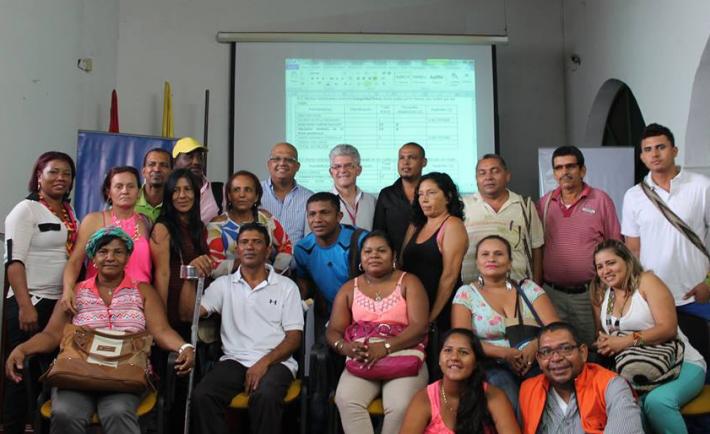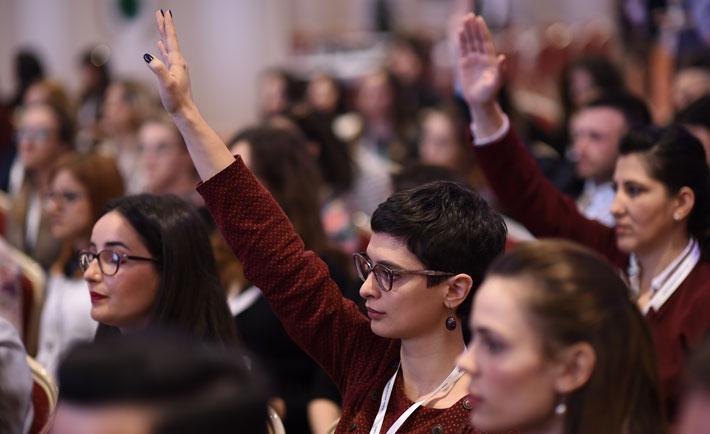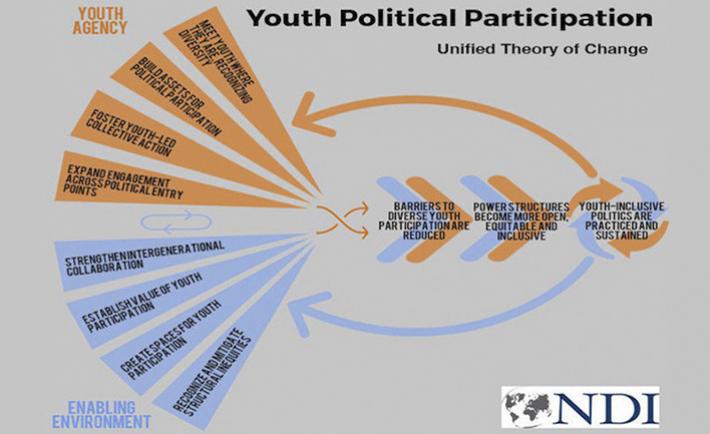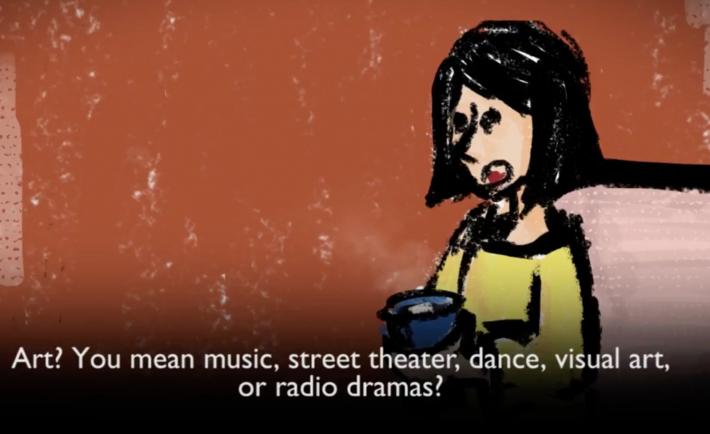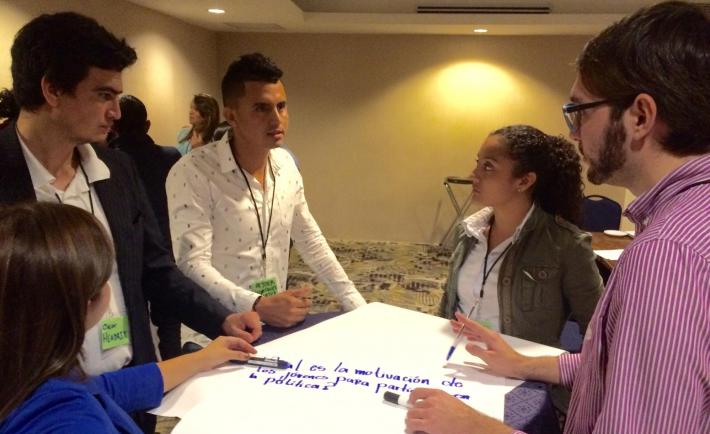One person is forced to flee their home every second according to the International Displacement Monitoring Center. The current estimated number of refugees and internally displaced people (IDPs) around the world is 65.3 million, a number equivalent to the total population of the United Kingdom. These numbers show that new and protracted crises are driving people from their homes at an alarming rate. Humanitarian systems devote huge efforts to ease refugees’ suffering, specially focused on providing basic needs like food and shelter. Though these interventions are crucial, political participation for refugees and IDPs is also important and can be the first step to finding viable long-term solutions for their plight.
Internally Displaced People and Refugees Must Take Part in Political Life
A New Side of Skills Development
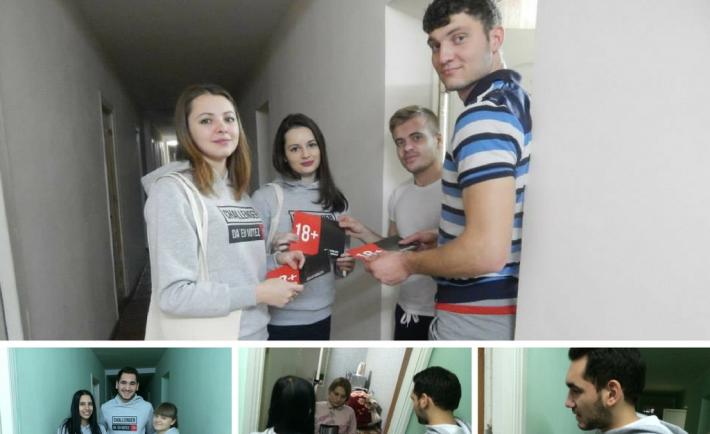
Participants in Moldova’s Challenger program canvass and get out the vote for parliamentary elections.
What helps citizens succeed as political leaders and activists? Beyond providing technical skills and tools, NDI has noted that developing certain attitudes and behaviors can help citizens participate more meaningfully in public life. Young political activists have consistently mentioned the need for improved “soft skills” to work effectively and succeed as leaders. USAID and other donor agencies are also recognizing the importance of putting these skills at the center of human development.
Naija Women on the Rise: Making Every Voice Count
_1_0_0_0_0_0_0_0_0_0_0.jpg)
2017 Andi Parhamovich Fellow, Ashley Dauda, with NDI Chairman and former Secretary of State Madeleine K. Albright at NDI's annual MKA Luncheon.
I recently attended a conference on ‘the Political Economy of Gender and Women’s Empowerment in Africa,’ organized by the School of Advanced International Studies at John Hopkins University. Gretchen Bauer, a Professor of Political Science and International Relations from the University of Delaware, held a presentation on the global ranking of women’s representation in national parliaments. As Bauer passed through the slides of her presentation, I didn’t bother to look for Nigeria since I already knew where we stood on the list globally: 181 out of 191—the lowest in Africa.
Grounding Theory in Practice: Youth programs in Jordan and Kosovo
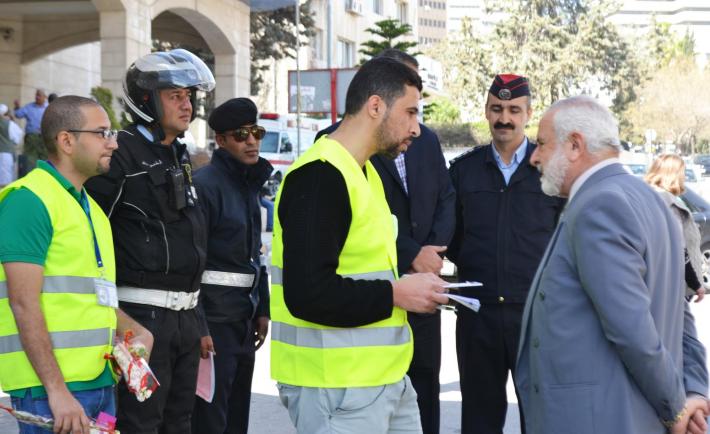
Usharek+ participants in Jordan launch their advocacy campaign with the goal of improving traffic safety.
NDI’s new theory of change unifies important elements of youth political participation programs and depicts how they can interplay to change practices of youth participation. This theory, which I blogged about last month, was not merely academic exercise from the “ivory tower.” It draws on discussions with young politically active women and men across Africa and Latin America, collaborative discussions with democracy and governance practitioners from around the world, and deep reviews of effective youth programs NDI is conducting in Jordan and Kosovo. The Jordan and Kosovo programs show how the theory of change can play out in practice.
Needing A Longer Runway: Inspiring Young Women’s Political Engagement
Take a moment to reflect on what you wanted to become when you were eight years old—which, if you are a woman, was when you were at your most confident. How did that change by the time you turned eighteen? For those who were (or are) aspiring politicians, you might be interested to know that research in the U.S. says girls are equally politically confident—for example, in running for class president and student councils—as boys until high school, when it drops by half. NDI’s Gender, Women and Democracy team has taken on the task of finding out what this political confidence gap looks like on a global scale and, more importantly, how to address it.
How to help youth strengthen their participation and influence
Surging youth activism and leadership has the potential to change the world. Accordingly, young people are increasingly being recognized as indispensable agents for sustainable development and the source of a demographic dividend. But more work is necessary to support their active engagement and satisfy young people’s desire to have more than just a seat at the table. To help meet this need, NDI recently developed a unified theory of change, illustrated in the graphic above, which depicts the process of institutionalizing meaningful youth political participation.
Fighting for Ethnic and Religious Tolerance in Central Europe: Muneeb’s Story
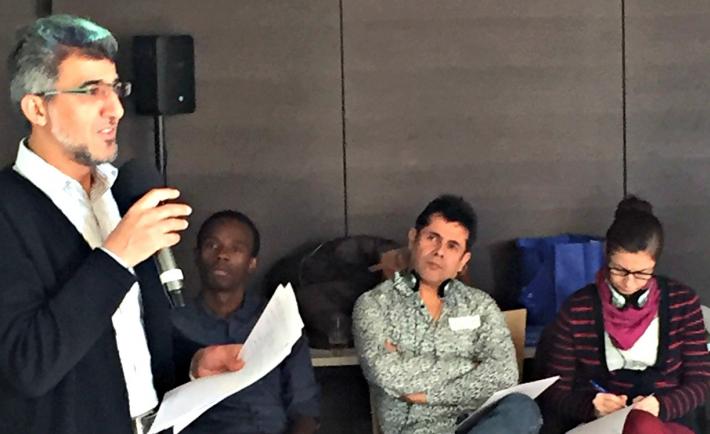
Muslim in faith, Czech at heart: Muneeb leads fellow participants from the Czech Republic and Slovakia at a recent NDI gathering on joint responses to growing religious and ethnic intolerance
Muneeb has a quiet reserve that gives way to a beaming smile when you ask him about his work and life. A long-time resident of Brno, the capital of the Moravian region of the Czech Republic, Muneeb’s English is halting, so he is quick to turn to Czech, his everyday language for three decades. Muneeb is married, a father, and runs the Czech Center for Muslim Communities. He reserves his native Arabic for family and spiritual matters.
For Muneeb and other longtime residents of Muslim faith—many if not most Czech citizens—the refugee crisis has lifted the curtain on some unpleasant realities. The unprecedented wave of humanity from the greater Middle East has elicited sympathy and aid from many quarters of Czech society. But many express fear about what the presence of foreigners means for their safety and identity—although few if any refugees have actually set foot on Czech soil, much less settled there.
“Youth Bulge” is Making Waves In Nigerian Politics
NDI staff Lauren Kitz and Jesper Frant lead YIAGA through a visioning and reflection workshop on its #NotTooYoungToRun campaign.
Margaret Mead is quoted as saying, “never doubt that a small group of thoughtful, committed citizens can change the world; indeed, it's the only thing that ever has.” In late February, I traveled to Abuja, Nigeria to meet with one such group of thoughtful, committed citizens.
The Youth Initiative for Advocacy Growth and Advancement (YIAGA) is one of Nigeria's preeminent youth organizations. YIAGA, along with the Youngstars Development Initiative (YDI), has conducted a very successful advocacy effort to lower the eligibility age to run for elected office in Nigeria. From humble beginnings, the #NotTooYoungToRun campaign has grown into a national movement.
Citizen participation: What’s ART got to do with it?
The Civic Update is a production of NDI’s Citizen Participation Team which highlights innovative practices, approaches and lessons from NDI programs. The January 2017 video edition, Art for Campaigning, focuses on how NDI has supported local partners to use art as part of their organizing. It includes examples from the Central African Republic, Guatemala, Kosovo, Macedonia, Nepal and Nigeria.
Youth are driving change in Latin America
Twelve young Latin American political leaders and activists recently gathered in Guatemala for an NDI-led workshop on youth political participation. Conversations ranged from what motivates youth to get involved in politics, to how sociocultural norms about youth affect their work, and what tactics youth have used to elevate their political voices in their home countries of El Salvador, Colombia, Guatemala, Honduras, Nicaragua and Mexico. Amidst widespread myths about youth political apathy, these diverse young activists represent a generation that is motivated to build more inclusive, democratic societies.

